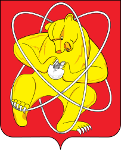|
Obdicut posted:Europe in Medieval times, meanwhile, mostly attacked itself-- aside from the adventures in the Middle East. I think you make a good point that Europe was, say, more militarily dense than other areas, but I think the extreme political fragmentation, especially of the Holy Roman Empire, makes the idea of a coherent defense against the Mongols unlikely, and so victories investable. I also think that the crusading aspect would be limited because the Mongols allowed freedom of religion, which Friar John had reported on (if you haven't read his report, it's awesome: http://depts.washington.edu/silkroad/texts/carpini.html definitely not a guy who believed in Mongol invincibility) even after the "Prester John" myth got deflated. In other words, if you look at Mongol-Christian relations, you definitely don't see a 'crusading' aspect against them in general, more a bunch of shifting and confused attitudes that I don't think indicate either a real comprehension of the possible threat or an idea that unity was necessary to defeat it. I read the Carpini's book few years ago; good stuff. Here's the complete text: http://ebooks.adelaide.edu.au/h/hakluyt/voyages/carpini/complete.html. Everyone in this thread should read it. Carpini would feel himself at home in this thread, because he also spergs on about what kind of weapon combinations one should use to fight against horse-archers. Carpini did write that unity was necessary to defeat Mongols if they attacked, because no country would be able to do it alone. PiratePing posted:The ones I quoted I grabbed from here, online/ebook versions of the Facetiae by Poggio here. The Art of Party Crashing is pretty good too. Thanks. Hogge Wild fucked around with this message at 12:18 on Oct 3, 2013 |
|
|
|

|
| # ? May 8, 2024 22:32 |
|
Arglebargle III posted:I have heard some Nordic language speakers complain (I think the Skyrim thread) that Jarl is pronounced almost exactly like Earl and that a heavy "ya" sound is wrong. So this is actually an example of language correctness.
|
|
|
|
Smoking Crow posted:I was wondering how the creation of the Dominicans changed lay piety. Did they effectively destroy heresy like they intended? Or was it all just inquisitions and torture? Yes and no. The Dominican Order was founded around 1216, from after 1234 if you include the Inquisition the Cathars were mostly destroyed (according to John Sumption, Albigensian Crusade as well as Sean Martin, Cathars: The Most Successful Heresy of the Middle Ages). If we accept Sean Martin’s title at face value, saying the Cathars were the most successful, and they were mostly defeated, then by that logic they did effectively destroy at least that heresy at the time. But, it was only around 1244 that the Cathars were truly defeated by military force. On top of that, there were persecutions of suspected Cathars until at least the 1300s, so at the very least suppressing heresy took a while. The hunt for Cathars only seems to have stopped after the 1330s. I believe the answer I am looking for is “Eventually.” However, there were resurgences of heresy from around 1380-1400 you get the Lollards, and the Hussites after that (1415-ish). I think the orders basically silenced people more than they convinced them. With the Franciscans, I can’t say. I cannot really say which sect deserves the ‘credit’ for suppressing heresy, though the extent of the persecutions against heretics leads me to believe that the Franciscans’ less aggressive approach was not as successful. Obdicut posted:I seriously think that part of the reason why a lot of people know it's not true is they know that a 'Kamikaze' wind destroyed a Mongol fleet, and Japan was never conquered by them. Japanophilia + WWII phraseology. Thanks for the sources; I shall definitely check them out in greater detail when I get the chance. That much I certainly agree on. The more I look at the situation, the question becomes less “Could Subotai conquer the area?” and more “How much in the way of resources and reinforcements would he need to do it and how much is he likely to get?” Background information on the Holy Roman Empire for the time period (really for anyone who might want to know): Around 1243, the Holy Roman Empire was under the rule of Frederick II, who (according to Cantor Norman, The Civilisation of the Middle Ages) was far more interested in Italy than in the German provinces. Also, between Freddy’s troubles with the Pope and his relative acceptance of non-Christians, he might have been open to deals with the Mongols. Whether the Mongols would be at all open to negotiating is another matter entirely though. What got me curious about this is that I remembered that the mid-1200s was the Great Interregnum of the Holy Roman Empire, when the fragmentation was at its worst. But that was from 1254 to 1273. Arglebargle III posted:You should give it a try. You only need the most basic grounding in French verbs and connecting words like "donc" to read French with a decent level of accuracy if you are a college-educated native English speaker. The amount of vocabulary we share is astonishing when you actually go read something. I love donc. You read this erudite sentence and then "therefore" is replaced with DONK. It would be interesting to see how much French I remember from secondary school. I can’t think of much off the top of my head, but I would probably get a general idea when reading something. Maybe French was a bad example…
|
|
|
|
Railtus posted:Yes and no. The Dominican Order was founded around 1216, from after 1234 if you include the Inquisition the Cathars were mostly destroyed (according to John Sumption, Albigensian Crusade as well as Sean Martin, Cathars: The Most Successful Heresy of the Middle Ages). If we accept Sean Martin’s title at face value, saying the Cathars were the most successful, and they were mostly defeated, then by that logic they did effectively destroy at least that heresy at the time. Thanks for the reply. For the Franciscans, I was more wondering what they did to the average person. I remember reading somewhere that they revolutionized piety and I was wondering how they did that.
|
|
|
|
Smoking Crow posted:Thanks for the reply. For the Franciscans, I was more wondering what they did to the average person. I remember reading somewhere that they revolutionized piety and I was wondering how they did that. I’m trying to do some research about it, but what I’m getting is basically jargon and assertions. I’ll share the link in the hopes someone else can make more sense of it than I can. The source is Sarah McNamer, Affective Meditation and the Invention of Medieval Compassion, at the bottom of page 237: http://books.google.co.uk/books?id=...20piety&f=false Apparently there are a lot of statements cited saying they were influential, but no explanation or expanding on it. I’m not seeing anything clear so far though.
|
|
|
|
OK so I have a fairly broad question: What caused the decline of Pisa? I know they were fairly hot poo poo in the 13th century, but I know very little about northern Italy in the Middle Ages. It seems like a lot of fun. In fact, any posts about northern Italy would pique my interest.
|
|
|
|
Rodrigo Diaz posted:OK so I have a fairly broad question: What caused the decline of Pisa? I know they were fairly hot poo poo in the 13th century, but I know very little about northern Italy in the Middle Ages. It seems like a lot of fun. Broadly, their maritime power was outfought and comprehensively defeated by Genoa during the thirteenth century and never really recovered in the following decades, in part because the Pisan harbor gradually silted up.
|
|
|
|
Smoking Crow posted:Thanks for the reply. For the Franciscans, I was more wondering what they did to the average person. I remember reading somewhere that they revolutionized piety and I was wondering how they did that. From what I remember, the thing that may have made the Franciscans, or I guess Francis himself unusual was that they/he offered an alternative to the scholarly rationalism that was growing in vogue at the time by rather literally but accessibly seeking to emulate the life of Jesus through poverty, humility, and suffering, and that they did so publicly, begging and living in the streets, instead of being closed off in a monastery. You could say that Franciscan spirituality is focused on the life and passion of Christ instead of on metaphysics or more intellectual and scholarly bases, which was far more accessible to the average person (if I remember correctly, Francis himself was never even ordained as a priest). Or maybe it's just that, compared to the typical clergy of the day, they were actually poor and actually humble and took that stuff seriously. I believe Francis also invented the Christmas nativity display as well as stigmata (as a physical thing that would appear on people). Obviously, while I did some cursory date/fact checking, a lot of this is sort of off the cuff, but maybe later when I have some time I can source this out a bit more and look up the opinion of more authoritative sources.
|
|
|
|
Rodrigo Diaz posted:OK so I have a fairly broad question: What caused the decline of Pisa? I know they were fairly hot poo poo in the 13th century, but I know very little about northern Italy in the Middle Ages. It seems like a lot of fun. How late are you interested in? My mom's area is the Renaissance in Italy, but that comes earlier to Italy than anywhere else. You want me to ask her for more detail or book/journal article recommendations?
|
|
|
|
Where did the concept of a crown come from?
|
|
|
|

|
|
|
|
SlothfulCobra posted:Where did the concept of a crown come from? As a signifier of power? It's probably very very ancient. As a crown itself (like, what aspects make a crown), it goes back to the Achamaenid Empire. I think (not really sure) that it gained significance with medieval European monarchs when the Holy Roman Emperors began wearing them. Being crowned by the Pope was a pretty big deal. I'd hazard a guess that that is where its importance to European Monarchy comes from.
|
|
|
|
AShamefulDisplay posted:As a signifier of power? It's probably very very ancient. As a crown itself (like, what aspects make a crown), it goes back to the Achamaenid Empire. I think (not really sure) that it gained significance with medieval European monarchs when the Holy Roman Emperors began wearing them. Being crowned by the Pope was a pretty big deal. I'd hazard a guess that that is where its importance to European Monarchy comes from. It goes back to the dawn of written history, and probably far back before then. The Narmer Palette shows Pharaoh Narmer wearing the crown of Lower Egypt on one side the the crown up Upper Egypt on the other - leading to the consensus that he unified the two Egypts into the first great civilization, circa 3100 BC. 
|
|
|
|
AShamefulDisplay posted:As a signifier of power? It's probably very very ancient. As a crown itself (like, what aspects make a crown), it goes back to the Achamaenid Empire. I think (not really sure) that it gained significance with medieval European monarchs when the Holy Roman Emperors began wearing them. Being crowned by the Pope was a pretty big deal. I'd hazard a guess that that is where its importance to European Monarchy comes from. English crowns dating to 200 BC or earlier are known, so I don't think the HRE can claim much credit even in Europe.
|
|
|
|
Basically people like fancy hats. Judging from the booming virtual hat economy in TF2 et al., I think that it's a pretty safe bet that the first thing homo habilis did after inventing the pointy stick was put it on his head.
|
|
|
|
I really gotta wonder why it seems like in most cultures the guy with the fanciest hat is in charge.
|
|
|
|
Agean90 posted:I really gotta wonder why it seems like in most cultures the guy with the fanciest hat is in charge. When there's a bunch of people standing around, like an army, it's easier to see a fancy hat than nice boots or a lapel pin.
|
|
|
|
Isn't it the other way around? The guy in charge gets the coolest hat.
|
|
|
|
Well I guess its always a quick way to tell who is in charge. You might not get the vagaries of fashion for whatever people or situation it is. But you can bet your last dollar the guy with the biggest and best hat is the most important.
|
|
|
|
The other day in my history class, the professor offhandedly mentions that Aristotle might have been the most important person in the Middle Ages. Why is that? Also, I start taking Medieval history classes next semester. Maybe I'll be a Medieval historian like the rest of you. 
|
|
|
|
Smoking Crow posted:The other day in my history class, the professor offhandedly mentions that Aristotle might have been the most important person in the Middle Ages. Why is that? Because he was pretty influential in philosophical thinking. Him and Plato, but even Plato doesn't become super important until Europe sort of gets him back from Iberian Muslims. Basically you can blame him for all the misogyny. (All of it. Ever. In the history of ever.)
|
|
|
|
There's a lot of pages so I may have missed out, but why is it so hard to find a book or good info on robber-barons and knights? Did they all get Damnatio memoriae for being dicks or somethin'?
|
|
|
|
the night dad posted:There's a lot of pages so I may have missed out, but why is it so hard to find a book or good info on robber-barons and knights? Did they all get Damnatio memoriae for being dicks or somethin'? The most probable answer is that "robber-baron" is a term that almost nobody in the field uses unless they are referring to 19th century industrialists. But what exactly did you want to know? I'm quite strong on knighthood.
|
|
|
|
Rodrigo Diaz posted:The most probable answer is that "robber-baron" is a term that almost nobody in the field uses unless they are referring to 19th century industrialists. But what exactly did you want to know? I'm quite strong on knighthood. How do I become a knight
|
|
|
|
Rodrigo Diaz posted:The most probable answer is that "robber-baron" is a term that almost nobody in the field uses unless they are referring to 19th century industrialists. But what exactly did you want to know? I'm quite strong on knighthood. What type of robbers were more prevalent for taking a peasant's lunch money: established toll points on river and roads, or knights going around just randomly wrecking villages? Also, how much ire did this draw from the land owners who were losing cash for each village under their name being looted? the night dad fucked around with this message at 21:50 on Nov 3, 2013 |
|
|
|
Edit I'll answer this question when I'm not on a phone^^^^Smoking Crow posted:How do I become a knight Three easy steps: Get the gear (especially the horse) Go back to the 11th century Kick rear end Rodrigo Diaz fucked around with this message at 21:56 on Nov 3, 2013 |
|
|
|
Being wealthy and stealing from poor people is unquestionably fun, but it's a poor rate of return.
|
|
|
|
Frostwerks posted:Being wealthy and stealing from poor people is unquestionably fun, but it's a poor rate of return. Being wealthy and stealing from poor people is a decent description of feudalism, you just need a church backing you up.
|
|
|
|
Trust me I'd steal less from you that from the guys down the river over there, now we wouldn't want them to come over and start chevauchee us would we???
|
|
|
|
edit: My question was answered a few pages in to the thread, but I've got another that hopefully won't be answered in the next two pages I read though.  How common was it for a knight to have a shield? The stereotype is usually some guy who looks like a paladin from D&D with a sword and a shield half the size of himself. I'm not sure I've ever heard of knights actually using shields outside of jousting tournaments. Was it one of those things where, on the real battlefield, you have the shield for a bit of extra protection during a lance charge then toss them to your squire and grab the giant sword or hammer when you know you're going to be getting close? Also, is there a difference between a poleaxe and a halberd besides arguments that poleaxes had a spike this big and halberds had a spike thiiiiis big? Blast of Confetti fucked around with this message at 07:48 on Nov 6, 2013 |
|
|
|
Blast of Confetti posted:edit: My question was answered a few pages in to the thread, but I've got another that hopefully won't be answered in the next two pages I read though. Shields were in common use up until the adoption of plate armor, at which point they began to see less use since the armor itself offered enough protection.
|
|
|
|
Alekanderu posted:Shields were in common use up until the adoption of plate armor, at which point they began to see less use since the armor itself offered enough protection. Bucklers stuck around for quite a long time since if you're going to be waving a sword around without armor, a shield comes in handy. Edit: The Scots were kind of an exception since they used shields as their main form of protection up until Culloden or so. Kemper Boyd fucked around with this message at 11:54 on Nov 6, 2013 |
|
|
|
Alekanderu posted:Shields were in common use up until the adoption of plate armor, at which point they began to see less use since the armor itself offered enough protection. Shields are still in common use.
|
|
|
|
That is true, of course, but not for military purposes.
|
|
|
|
Alekanderu posted:That is true, of course, but not for military purposes. They are indeed used for military purposes but in that context attached to weapons instead of held in the hand. http://en.wikipedia.org/wiki/Gun_shield
|
|
|
|
I'm interested in hearing about battlefield looting in medieval Europe, though I imagine this is the type of thing that varied across time and culture. I'm specifically talking about looting corpses after a battle rather than looting farmland and towns. Was it done mostly by the soldiers, or by non-combatants? Was it a free-for-all, or was it more organized? Did the looters just personally take what they wanted and leave the rest, or did armies collect it all centrally? What did they do with all the extra arms and armor? Was it often melted down into scrap, or was it typically repaired and re-purposed by the victor? Were captured arms and armor important to the logistics of an army on campaign, or did it mostly just benefit them financially?
|
|
|
|
Crowns (I quoted the wrong post) Crowns are something I have never thought about before, however, as AShamefulDisplay mentioned, there were diadems worn by the Achaemenid Persian rulers. It got adopted by Constantine I and later rulers of the Roman Empire. Wreaths were used in ancient Greece and Rome. Arguably crowns are just more ornate versions. A lot of European powers wished to claim descent from Rome, which might be a factor (if not the only factor). That is not a very helpful answer though (that it was passed down from previous cultures). My girlfriend suggested to me that it was probably a good way to pick out the king from a crowd. This is all just speculation though. Smoking Crow posted:The other day in my history class, the professor offhandedly mentions that Aristotle might have been the most important person in the Middle Ages. Why is that? Aristotle influenced later Byzantine & Islamic scholars, but I would personally disagree with the professor on this. Guys like Thomas Aquinas were also influenced by Aristotle. However, I think the importance of Aristotle is probably exaggerated because of the later influence of the Renaissance – causing us to give disproportionate importance to classical Greco-Roman knowledge. This could be my bias though. the night dad posted:There's a lot of pages so I may have missed out, but why is it so hard to find a book or good info on robber-barons and knights? Did they all get Damnatio memoriae for being dicks or somethin'? I have yet to find a good book on robber-barons, though related searches that would help are the Interregnum of the Holy Roman Empire (1250-1273) and the Rhine League (who basically crushed the robber barons). Honestly, I think of robber-barons as a German thing, and most of the libraries I went to seemed to do their best to pretend that the land mass we now call Germany magically sprung into existence in 1939. For knights, it depends on your definition of a good book. Accessible, enjoyable and generally useful books are “Knight: the Medieval Warrior’s Unofficial Manual” by Michael Prestwich. I greatly enjoyed Swords and Swordsmen by Mike Loades, but that is only partially about the period. That last one is kind of pricy though. I’ll need to go through my shed to see if anything else jumps out at me, but those are the ones off the top of my head. Smoking Crow posted:How do I become a knight The usual path to knighthood starts with having enough family connections to begin your career as a page. This starts off as partly a glorified house-servant though involves some combat training as well. They would do light stuff like practise jousting on a wooden horse with wheels and so on. Later on the page becomes a squire. Again this is assisted by family connections, but a gifted youngster could impress a knight on his own merits. This is like an apprenticeship, where the squire acts as an assistant to the knight who accompanies him to battle. Most of what I read on knights differs over how much the squires participated in battle. I have heard of squires (or esquires) fighting directly, or of them simply bringing the knights fresh lances for their charge. I imagine it depended on how old the squire was, the needs of that particular conflict, and so on. The squire would also help care for the horses and gear, and in return he should receive training. How long spent as a squire varies. The traditional figure I have come across suggests 7 years as a page and 7 years as a squire, but this is just from quick online searches and I have never encountered any reason to believe this is set in stone. The knight can impress someone with a display of courage. Having family connections can help again. And so on. The ceremony for knighthood could be ornate as having baths, vigils and ritual clothing or it could be as straightforward as being hit by another knight (the last blow he should receive unanswered). Balian of Ibelien (the inspiration for Kingdom of Heaven) really did knight 60 guys just before the Siege of Jerusalem. In theory, the knight received a fee or land to support him. Later on, men-at-arms with the skills, background and equipment to be a knight would choose to remain squires, especially in England, because of the expenses attached to knighthood. This makes me think that the land grant was awarded less over time. Blast of Confetti posted:edit: My question was answered a few pages in to the thread, but I've got another that hopefully won't be answered in the next two pages I read though. Is it a halberd or a pollaxe? Yes. Medieval weapons do not always have the clear definitions we would like. Overall, a pollaxe did not always have to be an axe. Quite often the pollaxe in fighting manuals would be described using the word for ‘axe’ next to a picture clearly showing a weapon with a hammer and a beak. If I had to pick a major difference, I would say the halberd is bigger and more of a formation weapon, while a pollaxe is more of a personal weapon. the night dad posted:What type of robbers were more prevalent for taking a peasant's lunch money: established toll points on river and roads, or knights going around just randomly wrecking villages? Also, how much ire did this draw from the land owners who were losing cash for each village under their name being looted? Knights wrecking villages tended not to be random. They were called treaties or settlements. :P Boucicaut once received 15000 ducats per month from Lombard towns in exchange for a truce. There was also appatis as a term for extorting the local peasantry; it often skirted around being technically criminal, it was given the ‘justification’ of war (on the enemy) or taxes (on your own people). It does draw ire from the landowner, though if they are the enemy that doesn’t bother you so much. The line could also be blurred; the robber-barons of Interregnum Germany combined the two. Their castles on the river were unauthorised toll points. I have never done a comparison of the two, but I think it really depended on opportunity by period. Kemper Boyd posted:Bucklers stuck around for quite a long time since if you're going to be waving a sword around without armor, a shield comes in handy. Bucklers had the added perk of being more portable. An archer or crossbowman or pikeman could conceivably hang a buckler on his belt and quickly have it ready when the enemy got close. Railtus fucked around with this message at 18:09 on Nov 8, 2013 |
|
|
|
Railtus posted:How long spent as a squire varies. The traditional figure I have come across suggests 7 years as a page and 7 years as a squire, but this is just from quick online searches and I have never encountered any reason to believe this is set in stone. It was traditional for a studying craftsman to spend 7 years as an apprentice and 7 years as a journeyman before being accepted into the craftsman's guild. Presumably knights used the same time schedule because it followed the widely accepted custom.
|
|
|
|
Railtus posted:The ceremony for knighthood could be ornate as having baths, vigils and ritual clothing or it could be as straightforward as being hit by another knight (the last blow he should receive unanswered). Ahhh, humans
|
|
|
|

|
| # ? May 8, 2024 22:32 |
|
Wonder how the knightly traditions evolved.
|
|
|



































